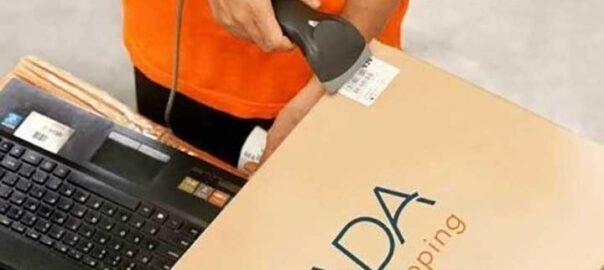Mohamad ElAnsari, CEO of Trendyol Gulf, discusses the factors behind the platform’s rapid growth, its commitment to empowering SMEs, and future expansion plans in the region
Since launching in the Gulf last year, Trendyol has rapidly expanded, with Saudi Arabia emerging as its second-largest market globally.
The e-commerce platform’s success is driven by strategic localisation, strong partnerships, and innovative technology, including AI-powered personalisation and seamless translation.
In this exclusive interview, Mohamad ElAnsari, CEO of Trendyol Gulf, discusses the factors behind the platform’s rapid growth, its commitment to empowering SMEs, and future expansion plans in the region.
Trendyol has experienced impressive growth in the Gulf since launching last year, with Saudi Arabia becoming your second-largest market globally. What factors do you attribute to this success in the region?
It’s been an exciting journey for us in the Gulf, and our growth reflects both the rapid evolution of the market and our ability to localise and integrate effectively. The regional retail sector, particularly in Saudi Arabia, has seen incredible growth in the past year, driven by economic diversification, urbanization, and a more digitally savvy consumer base. More people are shopping online and are increasingly expecting personalised experiences, a wide selection of relevant products, and competitive pricing.
On Trendyol, we have the best assortment of relevant, affordable and high-quality local and international products — this is ultimately what sets us apart and has contributed to quickly making us a preferred online destination for Gulf shoppers.
From the start, our key focus has been on understanding the market and tailoring our approach. Establishing offices in Riyadh and Dubai has allowed us to tap into local talent, while warehouses in Saudi Arabia and the UAE ensure we’re meeting customer expectations for fast and reliable deliveries.
Our partnerships have also been a big part of our success. Collaborating with the government and industry players like banks, telecoms, and retailers has helped us strengthen our presence and operational efficiency. On the tech side, we’ve introduced innovative solutions, like Türkiye’s first large language model, which simplifies communication between sellers and buyers by translating seamlessly into Arabic. AI personalisation has also enhanced the shopping experience, helping customers find what they need quickly and easily.
Moving forward, we’re focused on innovation, improving customer experiences, and empowering local SMEs which we believe will benefit the entire ecosystem. We see ourselves as more than just a marketplace — we want to enable two-way commerce — from and to the Gulf — ultimately contributing to the region’s economic growth.
Can you explain Trendyol’s marketplace model and how it benefits both consumers and brands, particularly in the Gulf market?
In simple terms, we are a commerce enabler. We connect consumers with retailers selling a wide selection of high-quality, affordable products across multiple categories, while providing our brand partners – from regional giants to local retailers – a scalable platform to reach millions of shoppers.
For customers, it’s about offering variety, relevance, and value. For sellers, it’s about visibility, growth, and access to tools like advanced logistics, seamless translation, and AI-powered insights that help them scale effectively. By bridging these needs, we’ve become an integral part of the Gulf’s retail ecosystem, creating opportunities and driving success for both sides.
Looking ahead, we’re focused on expanding our selection and bringing more local retailers and SMEs onto our platform to support their growth.
By doing so, we aim to contribute to the broader goals of fostering entrepreneurship and driving economic diversification in line with the national visions of Saudi Arabia and the UAE.
The strategic partnership with Alshaya Group brings major international brands like American Eagle, Bath & Body Works, and H&M to Trendyol. What does this partnership mean for the future of e-commerce in the region?
Our partnership with Alshaya Group is a significant step forward for e-commerce in the Gulf. By bringing reputed international brands to our platform, we’re offering Gulf shoppers even more variety and accessibility. It’s not just about expanding our product mix — it’s about meeting customer demand for trusted global brands in one place, making online shopping more convenient and seamless. This brings the digital retail ecosystem closer together and sets the stage for more innovative collaborations in the future.
How important is the local partner ecosystem to Trendyol’s strategy, and what role does it play in expanding your platform’s reach and relevance in the Gulf?
The local partner ecosystem is crucial to our strategy in the Gulf. It’s not just about expanding our reach, it’s about becoming a true part of the regional fabric. Through our collaborations with local SMEs, government bodies like Monsha’at, and key industry players, we’re able to empower businesses with the tools they need to thrive in the digital space.
For us, it’s about building relationships and supporting the growth of local talent and entrepreneurs. By curating region-specific collections and enhancing our seller experience, we’re able to tailor our platform to the needs of the Gulf market. These collaborations deepen our connection to the region, making Trendyol a local ally in the Gulf’s digital transformation.
With over three million shoppers already on board, what do you believe has attracted such a large customer base to Trendyol in such a short time?
Several factors have contributed to our success, including our wide selection of products from over 250,000 Turkish and regional SMEs at affordable prices, with the core premise being our strategic localisation efforts.
From the outset, we’ve focused on creating a localised experience, designing our platform to align with the preferences and needs of Gulf consumers. Our innovative use of technology, such as AI-powered personalisation and seamless translation, has made the shopping experience intuitive and enjoyable.
Additionally, our commitment to quality and affordability has established trust and loyalty among our customers. Effective marketing campaigns and influencer collaborations have also played a significant role in boosting awareness and engagement, helping us attract millions of shoppers in a relatively short time.
Looking ahead, what are Trendyol’s key expansion plans for the Gulf, and which markets or initiatives are you most excited about?
Our focus remains on deepening our presence in the Gulf by onboarding more SMEs onto our marketplace to support their growth while also catering to local customer demands. This is what we’re most excited about as it not only positively impacts the local retailers but also contributes towards the growth of the overall economy.
We’re also continuously looking into new ways of enhancing the customer experience, including investments into AI-powered logistics and predictive analytics to optimise the supply chain, improve last-mile delivery, and further personalise the shopping experience for our Gulf shoppers.
Author Credits: Neesha Salian
Gulf Business










